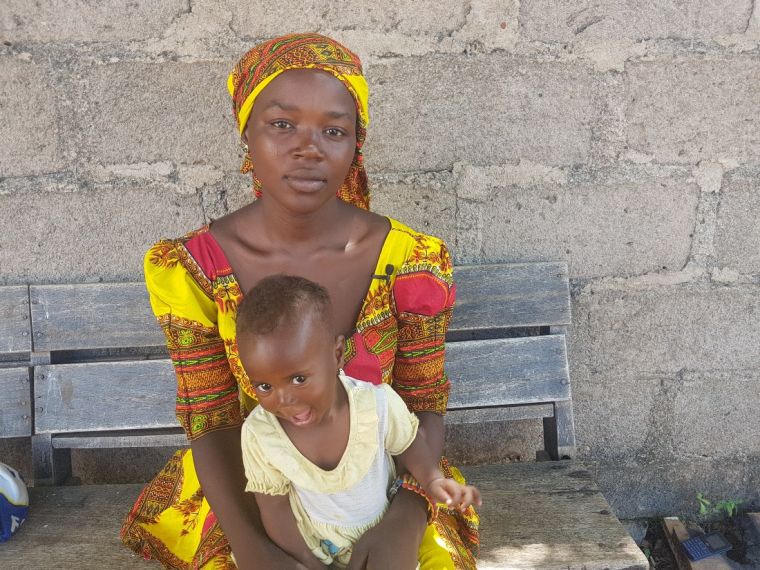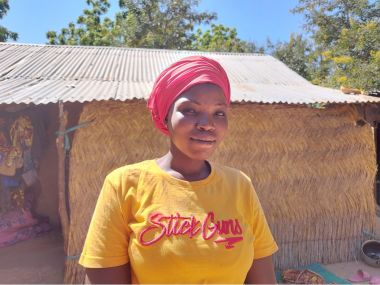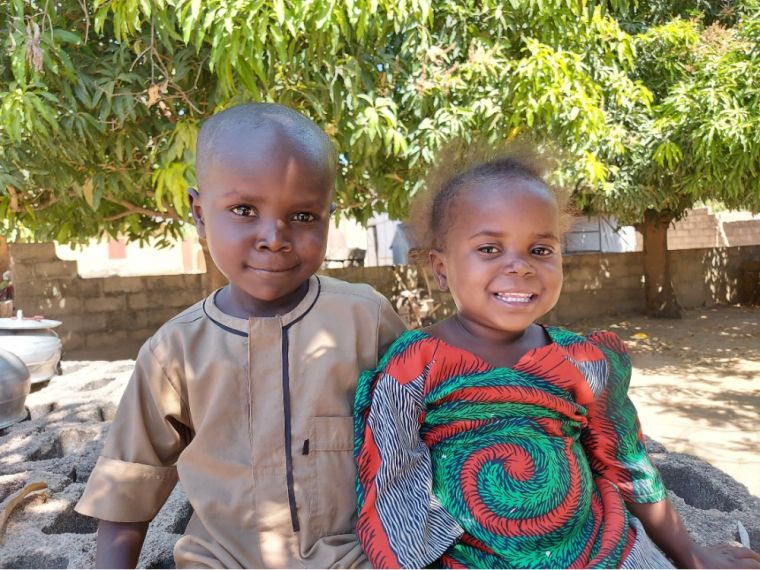Rejection and stigma - the painful reality for abducted Boko Haram 'wives' after they escape

Each year thousands of women in Nigeria are abducted and forced into sex slavery by Islamic extremist groups.
Some escape captivity but for many, their trauma only continues when they go back to the villages and towns they grew up in.
Agnes, who was kidnapped alongside her two friends, was beaten so badly by her captors that she was often left unconscious.
Her friends were killed while Agnes was allowed to live. But when she finally managed to escape and return to her community, she didn't receive the welcome she had expected.
Agnes says, "The day I found freedom, I felt so much joy in my heart."
But that feeling soon faded as a new realisation dawned. When Agnes ran from the Boko Haram encampment, she had managed to find her way to a village near her home. There, soldiers picked her up and took her to a camp where they told her she would be collected by her family.
She waited.
"I began to wonder," she says. "I stayed with the soldiers, but nobody of my family cared to come and pick me.

"Nobody came to see me. My mum and dad were too far away, in another town.
"But even relatives and friends who were staying nearby refused to come and welcome me, because they were regarding me as a 'Boko Haram wife.'
"They had already condemned me."
Eventually Agnes did get home but the estrangement she felt from her community was almost too much to bear.
She says, "After I had returned home, I refused to step out of the house because of the way people were talking about me.
"I wasn't shown any love at all. No one came to greet me. All they did was to laugh and sigh with contempt.
"At that point I told my sister that if I had known that this is how I would be treated, I would have remained in the forest or would rather be dead."
Sadly, her experience isn't a one-off.
Ijanada is another Christian woman who faced the same shock when she was able to return to her family after her abduction. She had been kidnapped by Boko Haram fighters and forcefully married off to a soldier when she was just 16.
Ijanada had spent nearly four years in captivity before she managed to escape. During the period of her abduction, she gave birth to a little boy called Luka and became pregnant with her second child, a daughter, Warasini.
When she finally saw her chance to escape, she was rejected from the people she grew up with.
Ijanada says, "I was not welcome. Most people kept mocking and insulting me."
Open Doors' trauma care worker Tirham says that women who become pregnant after being raped or forced to marry Boko Haram soldiers can often struggle to love the children born to them.

She says, "Often when women give birth to their babies, they feel they are not part of them.
"They look at the children as if they are the perpetrators. The children too are rejected by the community as well as the mother.
"Because the mothers feel the child is the object of their problems, they hit them and look down on them."
But for Ijanada, she found the strength never to allow her trauma to define her relationship with her children.
She says, "I've always loved my children - even though people tell me that they are children of the enemy. Everything that God makes is beautiful."
And although Boko Haram means 'Western education is forbidden', Ijanada is determined that her experience won't stop her from continuing her education.
She says, "I have been able to finish my secondary school, and I want to go to a higher-level education.
"I would love to continue my studies, but I lack financial possibilities.
"Please pray that God will open doors for me. Also pray that my children will grow up in God's image."











